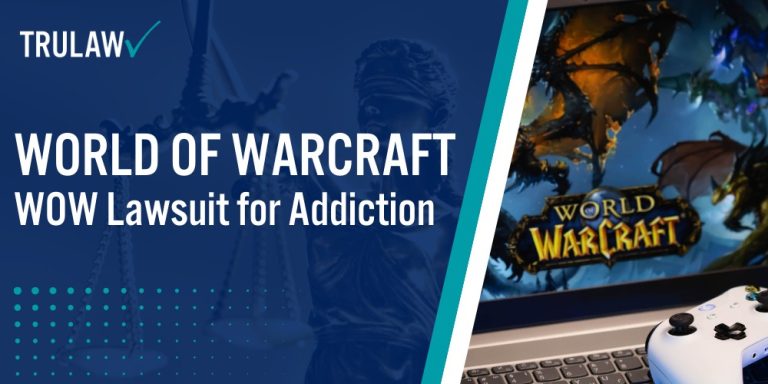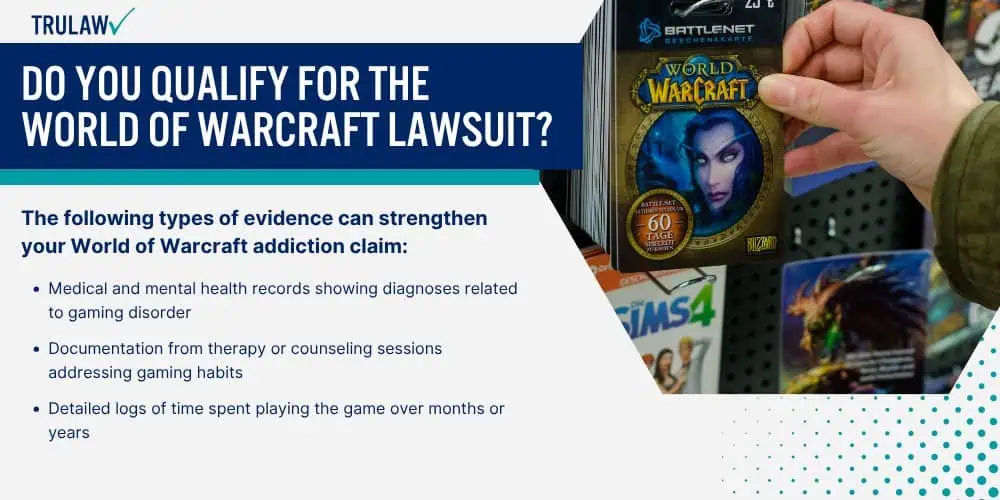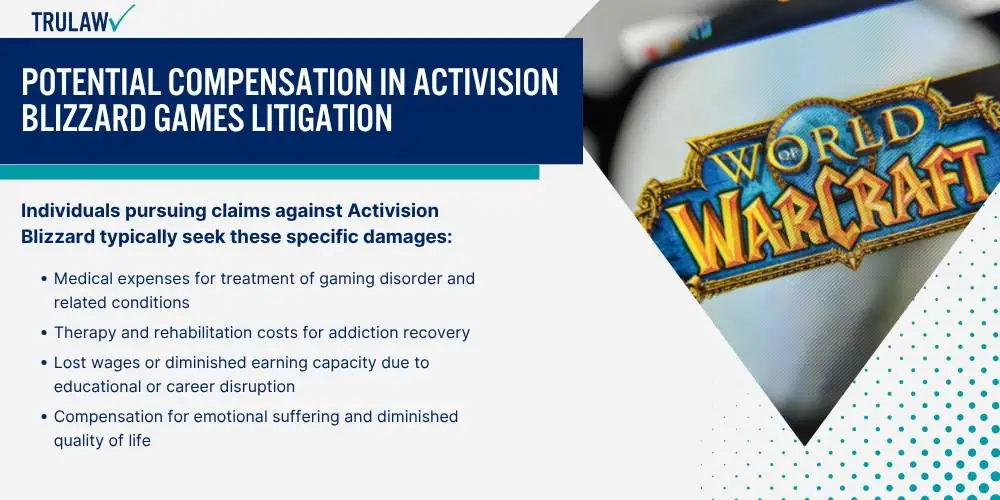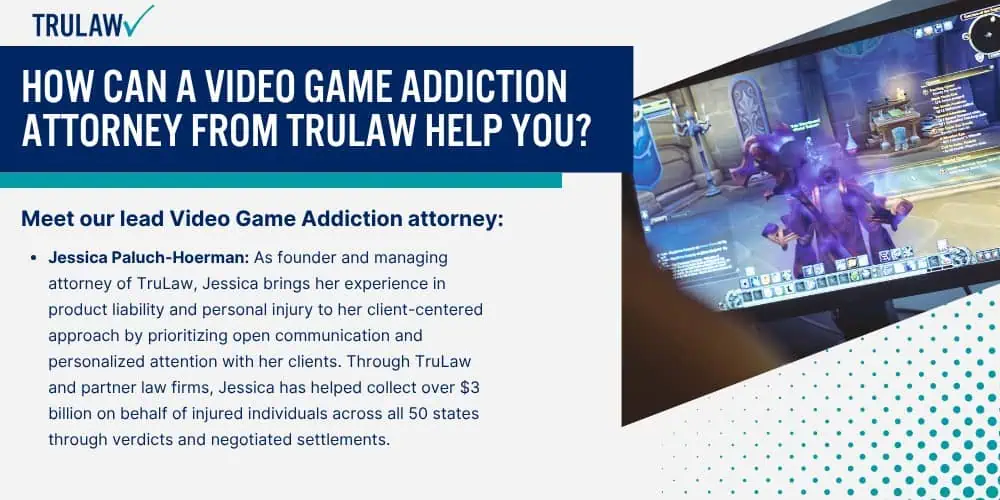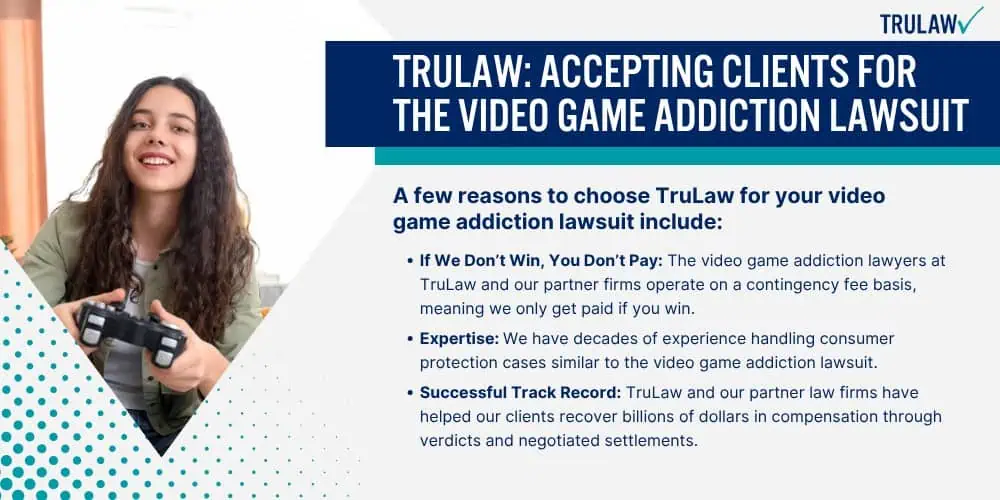World of Warcraft (WoW) has captivated millions of players since its release in 2004, but excessive gameplay can harm wellbeing.
Research shows that some players develop problematic usage patterns that meet the definition of behavioral addiction.
These patterns often emerge gradually as players become increasingly immersed in the game’s social and reward systems.
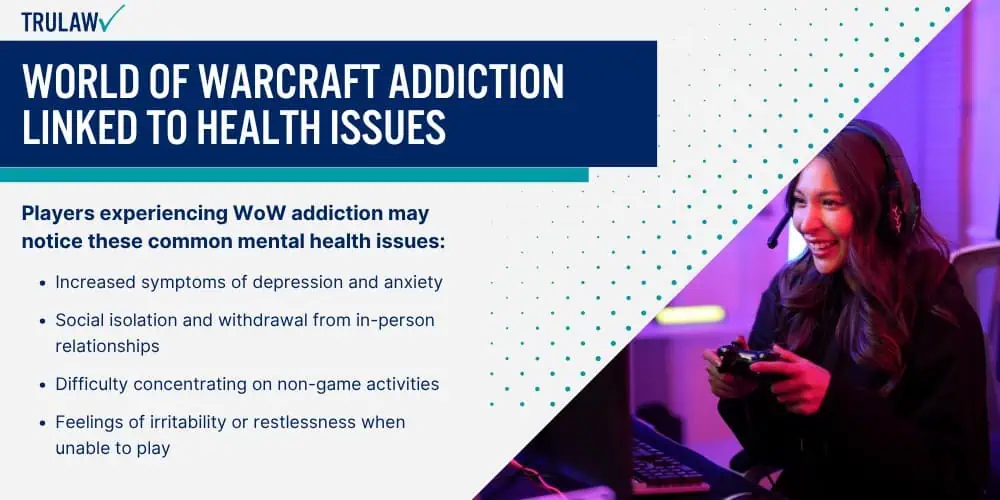
Mental Health Problems Associated with WoW Addiction
Excessive World of Warcraft playing can contribute to or worsen several psychological conditions.
The immersive nature of the game’s virtual world can lead some players to retreat from real-life social connections and responsibilities, creating a cycle that impacts mental wellbeing.
Players experiencing WoW addiction may notice these common mental health issues:
- Increased symptoms of depression and anxiety
- Social isolation and withdrawal from in-person relationships
- Difficulty concentrating on non-game activities
- Feelings of irritability or restlessness when unable to play
- Using the game as an escape from dealing with real-life problems
Research published in Cyberpsychology, Behavior, and Social Networking has found connections between excessive gameplay and psychological distress.
Many World of Warcraft players report using the game initially as a coping mechanism for existing mental health conditions, only to find their symptoms worsening over time with excessive play.
Physical Health Effects from Excessive WoW Playing
The sedentary nature of extended gaming sessions contributes to various physical health problems.
Players who spend many consecutive hours playing World of Warcraft often neglect basic physical needs in favor of continuing gameplay, which can lead to long-term health consequences.
The physical impact of WoW addiction manifests in several ways.
Players often report disrupted sleep patterns from late-night gaming sessions, which can lead to fatigue and weakened immune function.
Poor posture during extended gameplay frequently results in neck, back, and wrist pain or more serious repetitive strain injuries.
Many players also experience weight gain and decreased fitness levels due to reduced physical activity combined with unhealthy eating habits during gaming sessions.
